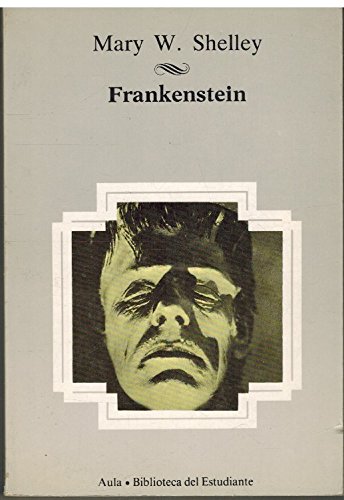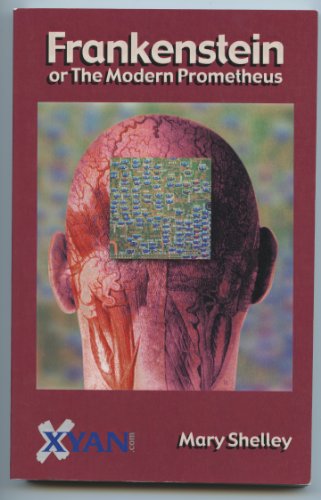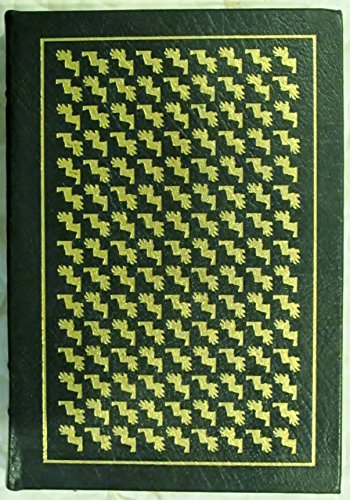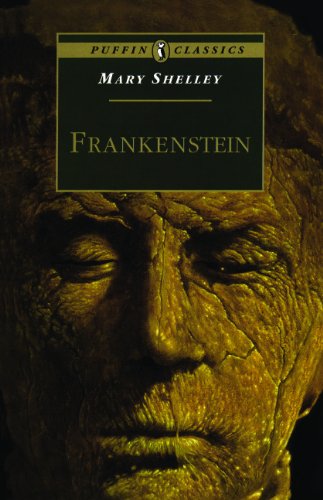-
Frankenstein or the Modern Prometheus
Mary Wollstonecraft Shelley
Hardcover (Wisehouse Classics, Sept. 20, 2017)This is the Revised 1831 Edition of FRANKENSTEIN; OR, THE MODERN PROMETHEUS, a novel written by the English author Mary Wollstonecraft Shelley about the young science student Victor Frankenstein, who creates a grotesque but sentient creature in an unorthodox scientific experiment. Shelley started writing the story when she was eighteen, and the novel was published when she was twenty. The first edition was published anonymously in London in 1818. Shelley's name appears on the second edition, published in France in 1823. Shelley had travelled through Europe in 1814, journeying along the river Rhine in Germany with a stop in Gernsheim which is just 17 km away from Frankenstein Castle, where, two centuries before, an alchemist was engaged in experiments. Later, she travelled in the region of Geneva (Switzerland)-where much of the story takes place-and the topic of galvanism and other similar occult ideas were themes of conversation among her companions, particularly her lover and future husband, Percy Shelley. Mary, Percy, Lord Byron, and John Polidori decided to have a competition to see who could write the best horror story. After thinking for days, Shelley dreamt about a scientist who created life and was horrified by what he had made; her dream later evolved into the novel's story. Shelley completed her writing in May 1817, and Frankenstein; or, The Modern Prometheus was first published on 11 March 1818 by the small London publishing house of Lackington, Hughes, Harding, Mavor, & Jones. The second edition of Frankenstein was published on 11 August 1822 in two volumes (by G. and W. B. Whittaker) following the success of the stage play Presumption; or, the Fate of Frankenstein by Richard Brinsley Peake; this edition credited Mary Shelley as the author. On 31 October 1831, the first "popular" edition in one volume appeared, published by Henry Colburn & Richard Bentley. This edition was heavily revised by Mary Shelley, partially because of pressure to make the story more conservative, and included a new, longer preface by her, presenting a somewhat embellished version of the genesis of the story. This edition tends to be the one most widely read now, although editions containing the original 1818 text are still published. Many scholars prefer the 1818 text, arguing that it preserves the spirit of Shelley's original publication.
-
Frankenstein, or the Modern Prometheus.
Mary Wollstonecraft Shelley
Paperback (British Library, Historical Print Editions, March 25, 2011)Title: Frankenstein, or the Modern Prometheus. [By M. W. Shelley.]Publisher: British Library, Historical Print EditionsThe British Library is the national library of the United Kingdom. It is one of the world's largest research libraries holding over 150 million items in all known languages and formats: books, journals, newspapers, sound recordings, patents, maps, stamps, prints and much more. Its collections include around 14 million books, along with substantial additional collections of manuscripts and historical items dating back as far as 300 BC.The FICTION & PROSE LITERATURE collection includes books from the British Library digitised by Microsoft. The collection provides readers with a perspective of the world from some of the 18th and 19th century's most talented writers. Written for a range of audiences, these works are a treasure for any curious reader looking to see the world through the eyes of ages past. Beyond the main body of works the collection also includes song-books, comedy, and works of satire. ++++The below data was compiled from various identification fields in the bibliographic record of this title. This data is provided as an additional tool in helping to insure edition identification:++++<Source Library> British Library<Contributors> Shelley, Mary Wollstonecraft; <Original Pub Date> 1882.<Physical Description> 122 p. ; 8º.<Shelfmark> 12619.i.20.
-
Frankenstein: Or The Modern Prometheus
Caliber Press
Comic (Caliber Press, )None
-
Frankenstein: Or the Modern Prometheus
Mary Shelley
Paperback (CreateSpace Independent Publishing Platform, July 15, 2010)Frankenstein is a classic. Horror and mystery, wrapped up in the hubris of man taking on the role of God. Frankenstein also known as The Modern Prometheus, has something for everyone in that it's relatable and brings into play many emotion that are a part of the human condition. Although Frankenstein is still Science fiction modern medicine and science is getting close. What lessons can we learn that will come into play today? Dr. Victor Frankenstein creates a monster without regard for consequences. His temptation to play God is all consuming, and it over takes him. What are the consequences? Well I guess you should read this masterpiece and see what you learn from Frankenstein. Z+
Z+
-
Frankenstein; Or, The Modern Prometheus
Afterword) Shelley, Mary (Joyce Carol Oates, Barry Moser
Paperback (University of California, March 15, 1984)None
-
Frankenstein or the Modern Prometheus
Mary Shelly
Paperback (XYAN, March 15, 2000)The story of the monster created by Victor Frankenstein as the result of a scientific experiment and the havoc it caused has mesmerized generations of readers and inspired countless writers of horror and suspense. "Frankenstein" contains elements of the Gothic novel and the Romantic movement and is also considered to be one of the earliest examples of science fiction.
-
Frankenstein: or The Modern Prometheus
Mary Wollstonecraft Shelley
Paperback (CreateSpace Independent Publishing Platform, Jan. 20, 2016)“Beware; for I am fearless, and therefore powerful.” Frankenstein, or the Modern Prometheus is an 1818 science fiction romance by Mary Shelley. Frankenstein, a young student, animates a soulless monster made out of corpses from churchyards and dissecting rooms by means of galvanism. Longing for sympathy and shunned by everyone, the creature ultimately turns to evil and brings dreadful retribution on the student for usurping God’s prerogative…
-
Frankenstein: Or The Modern Prometheus
Mary Wollstonecraft Shelley
Hardcover (Kessinger Publishing, LLC, June 2, 2008)This scarce antiquarian book is a facsimile reprint of the original. Due to its age, it may contain imperfections such as marks, notations, marginalia and flawed pages. Because we believe this work is culturally important, we have made it available as part of our commitment for protecting, preserving, and promoting the world's literature in affordable, high quality, modern editions that are true to the original work.
-
Frankenstein, or the Modern Prometheus
Mary Woolstonecraft Shelly, Edmund Lester Pearson
Leather Bound (Easton Press, March 15, 1962)None
-
Frankenstein: Or, the Modern Prometheus
Mary Wollstonecraft Shelley
Hardcover (Palala Press, May 23, 2016)This work has been selected by scholars as being culturally important, and is part of the knowledge base of civilization as we know it. This work was reproduced from the original artifact, and remains as true to the original work as possible. Therefore, you will see the original copyright references, library stamps (as most of these works have been housed in our most important libraries around the world), and other notations in the work.This work is in the public domain in the United States of America, and possibly other nations. Within the United States, you may freely copy and distribute this work, as no entity (individual or corporate) has a copyright on the body of the work.As a reproduction of a historical artifact, this work may contain missing or blurred pages, poor pictures, errant marks, etc. Scholars believe, and we concur, that this work is important enough to be preserved, reproduced, and made generally available to the public. We appreciate your support of the preservation process, and thank you for being an important part of keeping this knowledge alive and relevant.
-
Frankenstein: Or The Modern Prometheus
Mary Shelley
School & Library Binding (Turtleback Books, Nov. 1, 1994)FOR USE IN SCHOOLS AND LIBRARIES ONLY. Tells the story of a scientist who discovers the secret of generating life from lifeless matter, and puts this knowledge to use by creating a monster. Z+
Z+
-
Frankenstein, or the Modern Prometheus:
Mary Wollstonecraft (Godwin) Shelley
Paperback (CreateSpace Independent Publishing Platform, Jan. 12, 2017)Frankenstein; or, The Modern Prometheus is a novel written by English author Mary Shelley that tells the story of Victor Frankenstein, a young scientist who creates a grotesque but sapient creature in an unorthodox scientific experiment. It is a very early example of science fiction. Shelley started writing the story when she was 18, and the first edition of the novel was published anonymously in London in 1818, when she was 20. Her name first appeared on the second edition, published in France in 1823.Shelley travelled through Europe in 1814, journeying along the River Rhine in Germany with a stop in Gernsheim which is just 17 km (10 mi) away from Frankenstein Castle, where, two centuries before, an alchemist was engaged in experiments. Later, she travelled in the region of Geneva (Switzerland)—where much of the story takes place—and the topic of galvanism and other similar occult ideas were themes of conversation among her companions, particularly her lover and future husband, Percy Shelley. Mary, Percy, Lord Byron and John Polidori decided to have a competition to see who could write the best horror story. After thinking for days, Shelley dreamt about a scientist who created life and was horrified by what he had made; her dream later evolved into the novel's story.Frankenstein is infused with elements of the Gothic novel and the Romantic movement. At the same time, it is an early example of science fiction. Brian Aldiss has argued that it should be considered the first true science fiction story because, in contrast to previous stories with fantastical elements resembling those of later science fiction, the central character "makes a deliberate decision" and "turns to modern experiments in the laboratory" to achieve fantastic results.It has had a considerable influence in literature and popular culture and spawned a complete genre of horror stories, films and plays.Since the novel's publication, the name "Frankenstein" has often been used to refer to the monster itself, as it is in the stage adaptation by Peggy Webling. This usage is sometimes considered erroneous, but usage commentators regard it as well-established and acceptable.In the novel, the monster is identified by words such as "wretch", "creature", "monster", "demon", and "it". Speaking to Victor Frankenstein, the wretch refers to himself as "the Adam of your labours", and elsewhere as someone who "would have" been "your Adam", but is instead "your fallen angel."